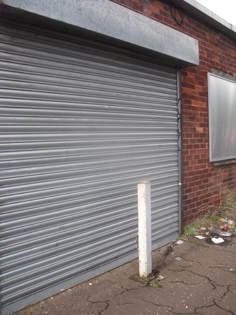The hold that organised crime and the counterfeit trade has long had in a part of Manchester – and, as remarkably, the part played by private security in tackling it – was told to the Association of Security Consultants’ (ASC) annual conference, Consec, in London last week.
The regeneration that has transformed Manchester city centre, like other city centres across the British Isles, has barely washed to the edges of Cheetham Hill, which begins after Manchester Victoria railway station. Many British cities have a district like Cheetham Hill, or put another way the Strangeways, M8 postcode. Once it was thriving with metal bashing and other industries, now it has plentiful uncleared litter and industrial waste on the streets, and an unlovely mix of what was once termed the rag trade; besides taxis parked, car lots, restaurants and take-aways, and warehouses, and an evangelical church premises.
Guards on the doors, bollards on the pavement in front in case of ram-raids and electronic shutters are usual security measures in retail. Less so are doors operated on key-fobs, and spotters on the streets, in case of a raid by Trading Standards. Dodgier still, people standing outside legitimate shops telling people they can buy their clothes – or watches, shoes, handbags and other luxury goods – cheaper in Cheetham Hill. For that rundown part of Manchester is where, Consec heard, 90 per cent of the UK’s counterfeit goods have been entering the UK.
So well-known had the area and its black and grey market retail become, it has featured in episodes of the BBC consumer protection series Fake Britain, as ‘Counterfeit Street’, a play on Coronation Street, the long-running ITV soap, set in a fictional suburb of Manchester.
Organised crime had adapted and sub-let premises, over 20 years. You might step off the street to hundreds of shops selling goods at knock-off prices, and if the authorities raided, you were locked in. On the street were sellers of counterfeit tobacco and medicines. The criminals even put up gates to block 999 vehicles.
A private company, TM Eye, was tasked by Greater Manchester Police, as GMP Detective Chief Inspector Chris Mossop and a retired Met Police DCI, David McKelvey of TM Eye, told Consec. The men spelled out to Consec the governance between the two, and their work so far.
Now only a fraction of the once-hundreds of premises are still open, but as Consec heard, counterfeit sales (online and on the physical high street) are still going strong, not least because they are popular with many of the public, who like to buy a designer name at a knock-down price, ignoring or ignorant of the possible shoddy or even unsafe quality of the goods.
More in the November 2019 print issue of Professional Security magazine.
Picture by Mark Rowe; off Cheetham Hill Road, weekday afternoon.









